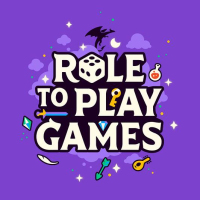For 18 years, a young boy has called his adoptive home “home”—until a chance discovery unravels a lifetime of secrets. Now, armed with fragments of his birth family’s past, he must navigate unfamiliar streets, confront lingering doubts, and decide what “family” truly means in this heartfelt adventure about identity, love, and the courage to seek answers.
The Cracks in the Foundation: Discovering a Hidden Truth
The story begins with quiet routine. The boy, now 18, spends his days helping around the house, unaware of the storm brewing beneath his feet. A chance find—an old trunk in the attic, a faded birth certificate tucked in a book—reveals the truth: he was adopted as an infant, his biological parents’ names and faces erased by time. The shock is twofold: not only does he learn of his origins, but he also discovers his adoptive parents hid the secret… for reasons still unclear. Was it protection? Shame? Or something darker? This revelation propels him forward, turning his once-stable world into a puzzle waiting to be solved.
Every clue feels like a thread pulling him deeper. A faded photo of a woman’s smile, a half-remembered lullaby hummed by his adoptive mother, a neighbor’s vague comment about “the baby they couldn’t keep”—these fragments form a mosaic of a life he never knew. But as he digs, questions multiply: Why did his adoptive parents wait so long to tell him? Who were his birth parents, and why did they leave him? The search for answers becomes a race against time—and his own growing confusion.
The Road Less Traveled: Challenges of the Search
Tracking down a birth family after 18 years is no small feat. The boy starts with the basics: birth records, social services archives, and online databases. But outdated information, missing documents, and dead ends test his resolve. He visits the town listed on his birth certificate, now a shadow of its former self, and interviews locals who remember “the young couple” who left town abruptly. Some offer kindness; others, suspicion. One old shopkeeper mutters, “They said they couldn’t give the baby a good life… but maybe they were running from something worse.”
Emotional hurdles loom large. The boy grapples with guilt—should he resent his adoptive parents for hiding the truth, or thank them for the love they’ve given? He also fears rejection. What if his birth parents don’t want to be found? Or worse, what if they’re no longer alive? These doubts creep in during quiet moments, making him question whether the search is worth the pain. Yet, every small victory—a matching DNA result, a witness who remembers his birth mother’s name—fuels his determination to keep going.
Beyond Blood: Redefining Family Along the Way
As the boy closes in on answers, he realizes the journey is about more than finding his birth parents. It’s about understanding what “family” means—both the one that raised him and the one he’s trying to reach. His adoptive parents, though initially hesitant to share, eventually open up about their fears: they worried he’d love them less, that he’d blame them for not being “enough.” Their honesty mends old wounds, teaching him that family isn’t defined by DNA, but by love, sacrifice, and the choice to stick together.
Along the way, he meets others touched by adoption—teens grappling with similar questions, birth siblings reconnecting later in life, even a social worker who’s spent decades helping families reunite. These interactions humanize the search, turning it into a tapestry of shared hopes and fears. By the end, whether he finds his birth parents or not, the boy emerges wiser: he knows where he came from, but more importantly, he knows who he is—and that’s enough.





















Preview: